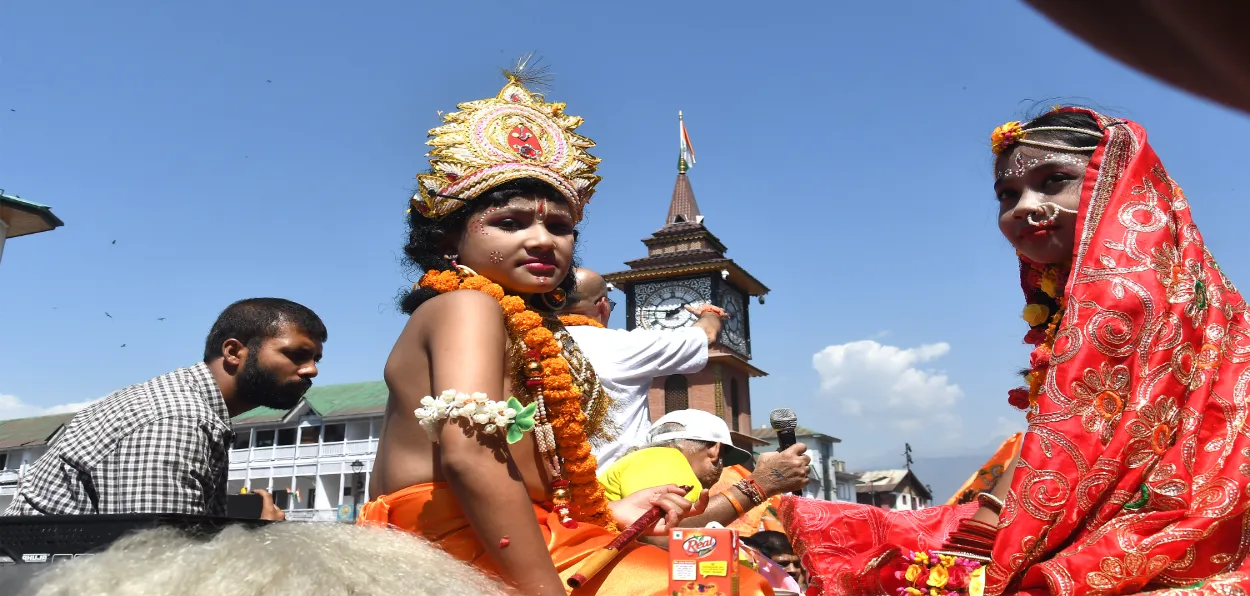
Ahmed Ali Fayyaz
With the passage of the Jammu & Kashmir Reorganisation Amendment Bill, 2023 in the Parliament during the winter session, that empowers the Lieutenant Governor of Jammu and Kashmir to nominate two persons from Kashmir’s displaced population to the Legislative Assembly, the Narendra Modi government seeks to address a major grievance of mainly Kashmiri Pandits who were forced to leave the Valley in the wake of secessionist insurgency three decades ago.
News Analysis
It’s widely acknowledged that the Kashmiri Pandits with their population of over 3 lakh have remained largely unrepresented in the legislature even before abrogation of Article 370 on August 5, 2019.
As voters, the Kashmiri Pandits have lived across many state and hence scattered due to their mass exodus in 1989-90 from their native valley.
Other displaced populations, both Hindus and Muslims, mostly from Jammu’s hilly areas have identified themselves with a number of the lawmakers elected to different Legislative bodies over the decades.
The amendment to Section 15 of the Jammu & Kashmir Reorganisation Act, 2019, also provides for the nomination of one MLA from the displaced population of Pakistan-occupied Kashmir (PoK). The 90-member J&K Legislative Assembly has a provision of 24 reserved seats for the POK people. These seats are suspended till India gets back those areas of the J&K.
The proposed law gives LG powers to nominate two Kashmiri migrants including one woman, and one PoK migrant to the Assembly. J&K assembly has already a provision for the nomination of two women members. This power earlier vested with the Chief Minister has been shifted to the LG.
With these changes, the UT’s Assembly will have 5 nominated MLAs in addition to 90 elected members -47 from Kashmir and 43 from Jammu.
The Delimitation Commission recommended reservation for Scheduled Tribes in nine constituencies and retained the reservation of seven seats for the Scheduled Castes (SCs) on a basis of rotation.
In the last 76 years, only seven Kashmiri Pandits have been elected to the JK legislature.
Durga Prashad Dhar, who was one of the Man Fridays of the then Prime Minister Indira Gandhi during the 1971 war with Pakistan was the Deputy Home Minister in Sheikh Mohammad Abdullah's cabinet in 1948.
After Sheikh Mohammad Abdullah’s return to power in 1975, only one Kashmiri Pandit was elected to the Assembly. He was a legal luminary Piaray Lal Handoo was elected for four consecutive terms on the ticket of the National Conference.
In 2002, his son-in-law Raman Mattoo was the last Kashmiri Pandit elected to the Legislative Assembly. He had contested as an independent candidate.
Both the Kashmiri Pandit members of the Constituent Assembly -DP Dhar and SL Saraf -also served as Ministers. Of the 6 Kashmiri Pandits elected as MLA -DP Dhar, ML Fotedar, MN Kaul, SK Kaul, PL Handoo, and Raman Matoo - all but SK Kaul also served as Ministers.
Khem Lata Wakhloo, a nominated member, who joined the breakaway faction of the National Conference led by G M Shah became a minister in 1984.
After the constitution of the bicameral legislature in 1957, Shiv Narayan Fotedar was elected the first Chairman of the Legislative Council. Six other Kashmiri pundits have served as nominated members of the Upper House that was abolished in 2019.
As per official figures, there are currently 46,517 families comprising 1,58,976 persons registered with the Relief Organisations as displaced people.
During the 1947 Pakistani aggression, 31,779 families migrated from PoK to the areas of Jammu and Kashmir. Of these, 26,319 families settled in the erstwhile State of J&K and others left for other states.
ALSO READ: Wedding rituals of Kashmir’s composite culture began changing after 1990
Further, a total of 41,844 families were displaced during the 1947-48, 1965, and 1971 Indo-Pak wars.
